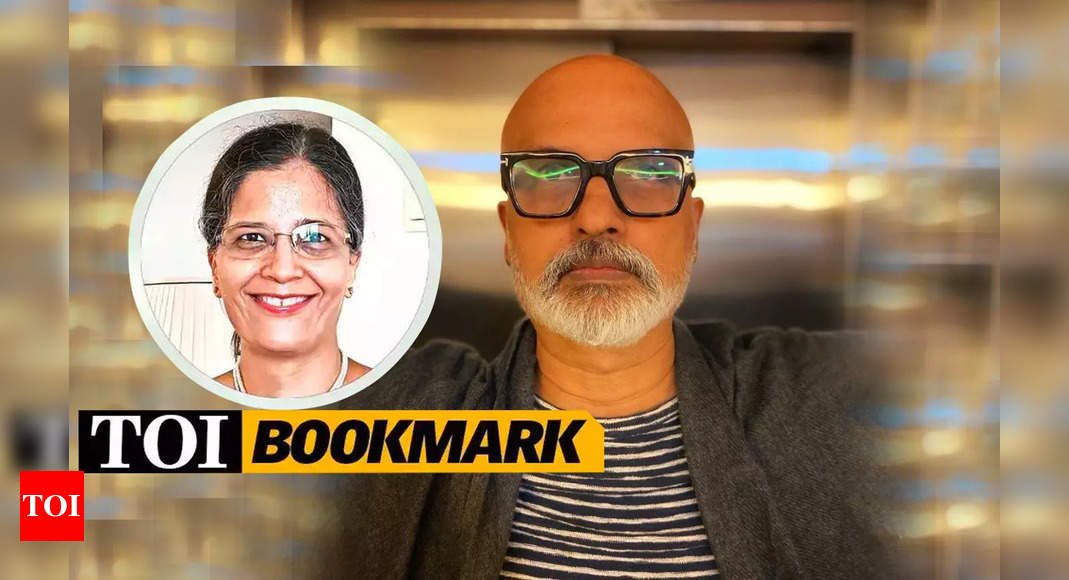Listen here:
Excerpts from the interview:
Q: This latest volume, which is very small but packs a punch, is a great distillation of your work, isn’t it?
TO: Yes, I think it is. And I think it’s also kind of a departure from previous books in the sense that there’s a new element to these poems: humor and a kind of playfulness, which I don’t think I liked before. It’s not hard at all. And I think it has to do with age. It’s about having done this for many years and no longer feeling the pressure of having to prove yourself like you do when you’re a younger poet.
Q: What you did here was play a lot with technique. It was very difficult to scan your poetry. What is your opinion on that?
TO: Yes, that’s exactly right. Actually, scansion was not something I was going for with this book. In fact, the only poem he explores in a traditional way is the last poem, Salvador Brisé for another daywhich is in dactylic meters. Other than that, scansion is quite unconventional. There are poems that are deliberately written with irregular right margins, where long lines are juxtaposed with very short lines, giving it the elastic rhythm of prose. But I also believe, especially in a poem like 1325which has very jagged and uneven lines, draws your attention to the next line and propels you down the page.
Q: From poet to novelist, what has the path been like?
TO: I think the thing is that I’ve never compartmentalized different things. I don’t think, “Okay, today I’m a poet,” or “Today I’m a novelist,” or “Today I’m a musician.” I just work every day. Sometimes it’s something you pursue for years, if it’s a novel. Other times, you’re working on several things simultaneously. You just do whatever you’re doing that day or those few days, and you bring the same things to the table. You bring the same kind of obsessions, the same kind of interests, and the same tools as a writer to each of those things. And I think that’s actually a much healthier way to do it. Because if you allow yourself to think, “Okay, today I have to be a poet,” I think that could make writing poetry very difficult.
Q: What does it mean to you to be a poet? What, for you, is the role of the poet in contemporary society?
TO: I think the reason we worship poets and admiring them is a very simple thing: we know that people do not write poetry for commercial reasons. That’s the only thing poetry doesn’t do: it doesn’t make money. And the moment you hear that someone has been a poet for years, you know that person is motivated by a need that is very different from the need that motivates most people, which is success, a job, money, a new car and all that stuff. And in a way it liberates the poets and makes us revere them. If it weren’t for poetry, what would we do?
I think poetry gives us a kind of solace and a lens through which to view an often horrible world. It works the same way as prayer. If you are lucky enough to receive a poem the way it was meant to be received, it acts on the mind in the same way that sentences do. Poems use rhythm and rhyme to make it easier for us to memorize and turn it into something that lands in the brain, almost like a worm that is difficult to dislodge. Poems use the same tools as sentences.
Q: There is this coexistence of sacred and the secular in your personality, which you highlight in your discussions of your poems. Is there anything to that?
TO: I try not to make a big deal out of it, but it’s certainly an element in my writing. I think it’s something we’re always aware of. We long to know God, and we can succeed in this, or we can fail more often than not. But it is a human longing to know something bigger than yourself, to understand why you are here and to feel in touch with the world around you. Sometimes God is nature. Even appreciate a dragonfly, for example, and see the intricate mechanism that goes into creating a dragonfly: its double pair of wings, its long body and its almost extraterrestrial appearance. You look at a dragonfly and realize that God is around you. And that is something we all share. It has nothing to do with the religion you practice.
Q: You often talk about poetic movements and have written a lot about them. Do we have poetry movements/schools in India today?
TO: No, we don’t. And I don’t know if that’s bad. I think the Internet has leveled the field in many ways. In the past, if you were working on poems or a book of poems, it would be a long time before it got out into the world. Of course, you could make copies and give them to your friends, but it would be a long time before other people saw those poems. Nowadays, it’s a matter of two clicks, your poem is up there and people are responding to it. It simply eliminates the gatekeepers of the poetry world and the people who want to control poetry. One of the consequences of this is the absence of poetry schools. Unless you think of groups around a certain figure on social media, but those aren’t really schools.
Q: One of your regular criticisms of the Bombay School of Poets was how institutionalized it had become around a few people, and only a few of the elders, including Dom Moraes, were willing to approach promising poets. , wasn’t it?
TO: Yes, absolutely. When he came across an interesting young poet, he did everything he could to help him, find publishers, and introduce him to other writers. I think he felt it was his duty to do that. And he felt that way because when he was young, older poets helped him. In fact, when he was 16 or 18, he was published by venerable older poets like Stephen Spender. That’s why he was so generous with younger poets. And you know, even today we have conversations about Dom and how carefully he read and commented on your work. It really was like going to poetry school. And more than learning meter, technique, and form, what you were learning was an invaluable lesson in how to live your life as a poet.
Q: Is that something you also hope to achieve with the volume you published in 2022? The Penguin Book of Indian Poets?
TO: Yes, exactly. In fact, the ages of the poets in the book varied greatly. One of the poets was 20 years old and the oldest poet in that book was Nissim Ezequiel. The difference in their years of birth was something like half a century. If you come across a good poem, you know it immediately. You can feel it. Emily Dickinson He once said that he knows he’s reading poetry when he feels the top of his head coming off. You feel it in your body. And I think that’s absolutely true in the case of poetry. It doesn’t matter if the poet who produces that effect on you is 15 or 50 years old; They inhabit the same space in your head.
Q: Does the principle of selecting poems differ when preparing an anthology, like the penguin bookAnd a collection of your own poetry?
TO: I think it’s good practice to throw away everything you have and keep only the good. If I were thinking about page count, this book would have been 120 pages instead of 90. It’s really a matter of “less is more.” I think that applies to the anthology as well. Although the anthology is 900 pages long and covers a world of poets. And I can honestly say that there isn’t a single poem in that book, even now, years after writing it, that I feel like shouldn’t be there. And that’s saying a lot.




